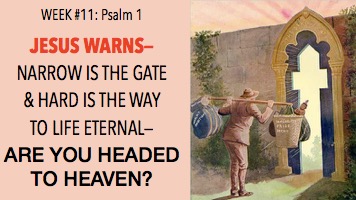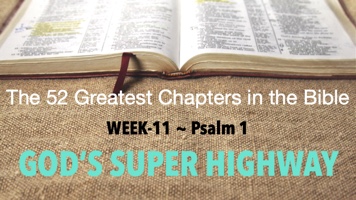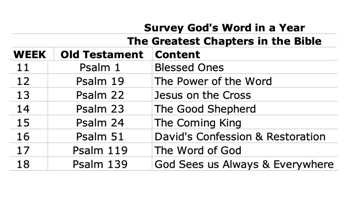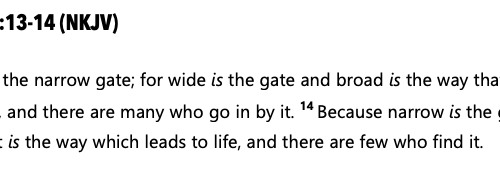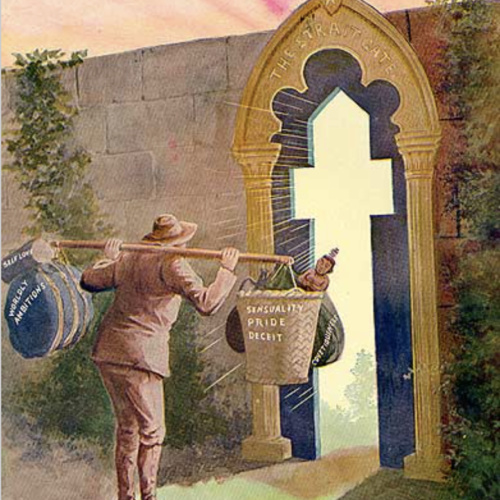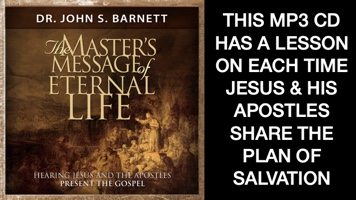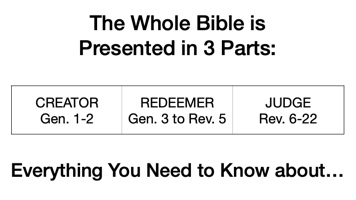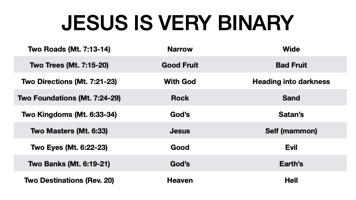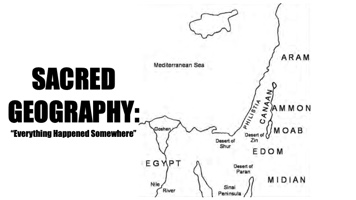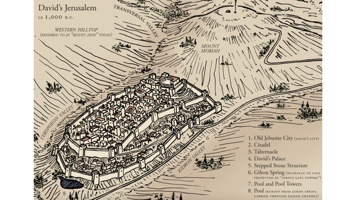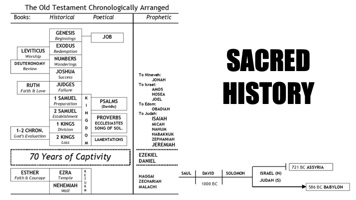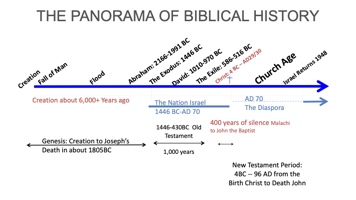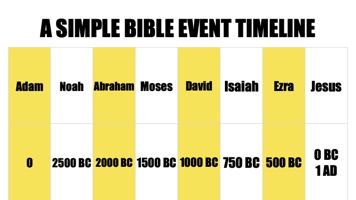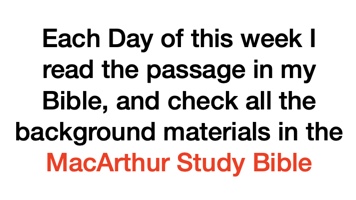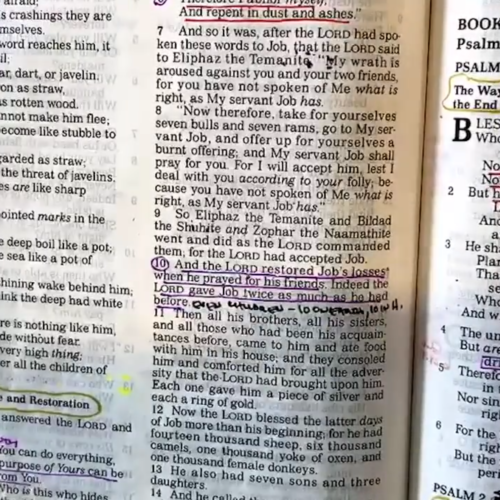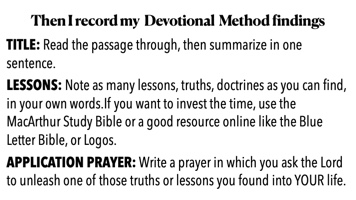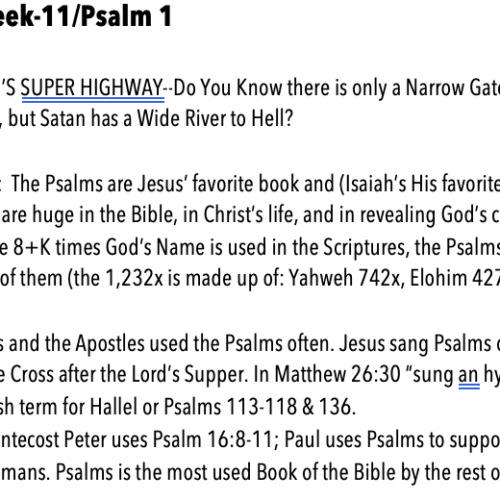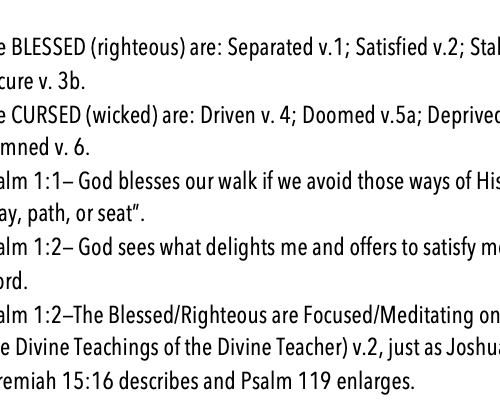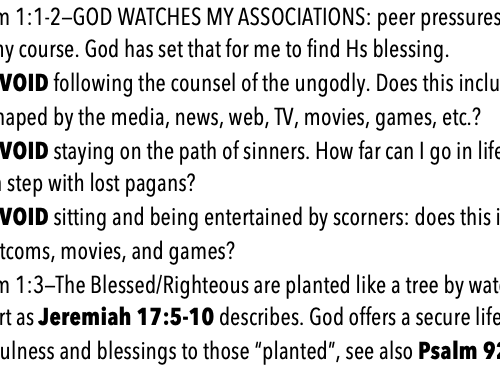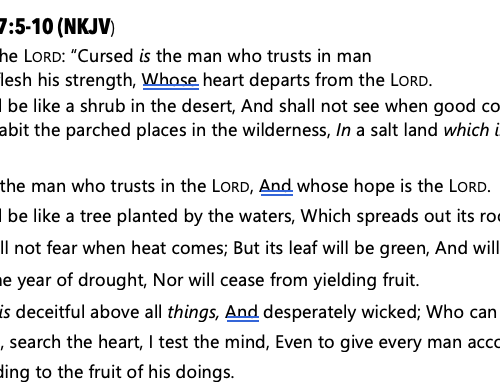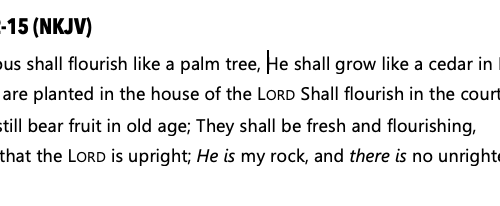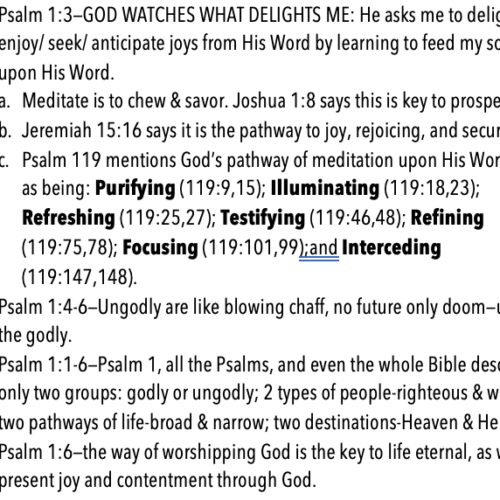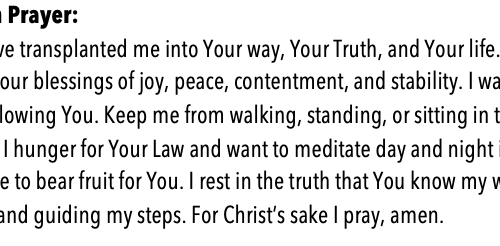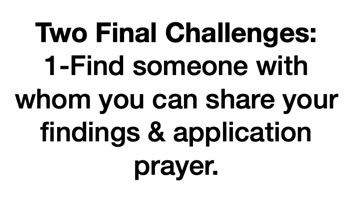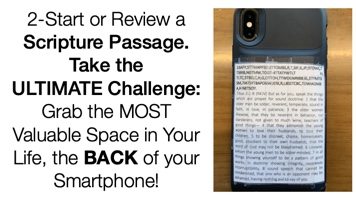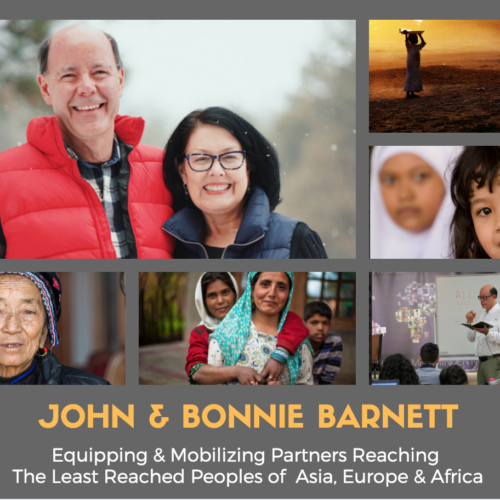If the YouTube video above is not available, here are two other ways to view:
FTGC-11a
Transcript
Welcome to week number 11 of our study through the 52 Greatest Chapters. If you want to open your Bible to Jesus’ favorite book of the Bible. You know where we are, most of you that are tracking with us, that’s the book of Psalms and Psalm 1. Which we’re going to read through, discuss, study all kinds of details about it. It was Jesus’ favorite book and that’s what really has blessed me all week long as I’ve studied this. This is the book that prophesied Jesus on the cross. This is the book that Jesus was singing as He left the garden of Gethsemane. This is the book from which Jesus uses the words as He hung on the cross and cried out for help to His father for strength, as He died in our place. Psalm1, it’s the gateway to the book of Psalms. It’s the gateway to everything that God has revealed in His word.
Let’s look down to slides and get started in this lesson. Then, we’ll go to the marker boards. The 52 Greatest Chapters.
We’re on week 11 for those of you that are tracking with us, but if you just joined us it’s okay to start now and just go for a year, and go through all 52. You see where we are. Week 11 is the beginning of eight weeks in the Psalms. These eight Psalms are so important. This one that we’re starting today, then next week is on the power of the Word of God. That prophetic song about Jesus on the cross. The most well-known psalm that the Lord is my Shepherd, Psalm 23. Many people don’t realize Psalm 24 is all about the second coming of Christ. The restoration of David from his sin of adultery in Psalm 50. Then the longest chapter in the Bible, longer than many New Testament epistles is the 119th Psalm. We’re going to have a great time studying that chapter. Then, the 139 Psalm in our next one.
This is the introduction to the theme that we’re going to see in Psalm 1. Jesus is speaking, you see right here in Matthew chapter 7, this is part of the sermon on the mount, which is Matthew chapter 5 through 7, which also are one of the key passages in the Bible we’ll study intently in a few weeks. Look at what Jesus said.
“Enter by the narrow gate.” By the way, this is Him explaining to common people. Look up from the slide for a second, let me share with you. In the sermon on the mount, we hear Jesus talking to that group of people that were gathered, that came to Him as He sat down and He spoke to them. The sermon on the mount, He is talking to His disciples and to the wider crowds of people that numbered in the thousands. He is explaining to them how they can receive Him as the one who would die in their place as their Savior. Listen to how clearly He explained salvation.
Back down to the slide, “Enter by the narrow gate.” Jesus calls Himself the narrow gate, because remember, he is the door. Remember, “I am the way, the truth, and the life.” I am the door of the sheep fold, in John 10. Right here, Jesus says I’m the narrow gate. Then He contrasts it. Look at this contrast here. “Wide is the gate and broad is the way that leads to destruction.” The road to Hell is like a wide river. The narrow pathway Jesus Christ, the entryway to life eternal is very narrow and difficult. There are many who go the easy way, away from Him into that broad way. “Because narrow is the gate and difficult is the way which leads to life, and there are few who find it.” Look at all those descriptors. Narrow. Difficult. A few find life. Wow.
Next slide, this is a summary from a Pilgrim’s Progress like Sunday School illustration. I just love this. It shows this man and he’s carrying a big bucket, his idol and all of his accomplishments, pride, and ambitions, worldly ambition, self-love. Look, that blocks the way, he can’t get through that narrow way, which is the cross, the straight gate. Jesus warns, narrow is the gate and hard is the way to life eternal. That’s what we need to realize.
Before we go to those extra resources, let me just show you up here on the white boards. Narrow is the gate, hard is the way to eternal life. That’s what we just saw, that Jesus said in Matthew 7:13-14. We’re on week 11. Psalm 1 is describing the entryway to God’s superhighway to prosperity.
Superhighway to prosperity? Are we talking about health, wealth, prosperity? Are we talking about how to have this amazing, one of those rich and famous homes, no. The ultimate prosperity is when our soul prospers. How do we get our soul to prosper? Take your Bible and let me show you how. The Lord inspired these words in the 1st Psalm. “Blessed is the man…” look on the board here, blessed. The whole 1st Psalm is a contrast between the blessed and the cursed.
Way over here I remind you, Jesus in that Matthew 7 passage is very binary. What I mean by that is, He believes in right and wrong, light and darkness. Only two gates. The gate to Heaven and the gates of Hell. Very binary. You remember in our culture to call someone binary is critical. If you are woke, you’re in with people that are socially acceptable are saying, so Jesus is not socially acceptable. Psalm 1 which we’re going to study today talks about the blessed and the cursed. In Matthew 7, that we just read, Jesus talks about the narrow and the wide. The blessed are on the narrow way, the cursed on the wide way.
He continues. When we go through the sermon on the mount, you’ll see He talks about trees. The blessed on the narrow way are bearing good fruit. The cursed on the wide way are bearing bad fruit. That’s how you know what road you’re on. It’s very easy. Jesus said, “by their fruits you will know them.” All born again people bear fruit. Jesus said some bear 30 fold, 60 fold, 100 fold. There are all different levels of fruitfulness, but Jesus said, all believers are bearing good fruit. What is fruit by the way? It’s the fruit of the Holy Spirit in my life. That’s why some people don’t have any fruit. They don’t have the Holy Spirit inside of them. He hasn’t transformed them from the inside out.
Jesus goes on to say, that the blessed on the narrow way with the good fruit are built on the solid ground, on the rock and of course the cursed, on the wide road with bad fruit are on the sand which there’s no foundation and the storms blow them away. The blessed are submitting to God’s kingdom. “Seek first,” Matthew 6:33, “the kingdom of God.” If you’re not in God’s kingdom, by default you were born, and I was born of our father the Devil. Every child, cute as they are at birth… chubby little infants, are born sinners by nature as soon as they start making choices and of course, according to the Bible by divine decree. We are born cursed, on the wide road, bearing bad fruit, with no foundation, in Satan’s kingdom. When we’re saved we become blessed, walking the narrow way, bearing good fruit, built on Christ, submitting to God’s kingdom, and headed to Heaven. The cursed are what? Headed to Hell.
Back to Psalm 1. “Blessed is the man,” Look at this list, this describes what a blessed, saved, narrow way, going to Heaven, life looks like. “Who walks not in the counsel of the ungodly, nor stands in the path of sinners, nor sits in the seat of the scornful.” Notice that this blessed man is different than the cursed. This contrast is what the whole song is built around. That’s where we’re headed.
Look back at your slides, what I’ve just said provokes you wanting to know more about this, if you really love to study the Bible, if you want to deepen your understanding of what we’re studying this week. Look at this. This is an entire series. There are, I would say 25 or more messages on the Master’s Message of Eternal Life. This is a series that you can find on our website, discoverthebook.org. Also, you can find if you look on YouTube. There are actually these Master’s Message, each one of these are on our channel. Here at the bottom, hearing Jesus and the apostles present the Gospel. Wouldn’t you like to be able to hear Jesus as He talks to people and explain to them how to have eternal life? That’s what we have in the Gospels. That’s what the Bible is all about.
The scripture has captured Jesus with the woman at the well. Jesus with Nicodemus. Jesus with all of those that He healed, that were paralyzed and blind. When He explains to them salvation, it’s the most powerful demonstration of what a true Christian is. My favorite is when Jesus led the apostle Paul to salvation. He was Saul of Tarsus, the great persecutor of the Church. Jesus said, this is salvation. I opened your eyes. I turned you from darkness to the light. I set you free from the power of Satan unto God. I forgave all your sins. I gave you an inheritance. I’m sanctifying you and putting faith in you. That’s Acts 26:18.
Back down to the slide, this MP3 has a lesson on each time Jesus and His apostles share the plan of salvation. This is actually a resource that you can get ahold of on our website to buy, an old fashioned MP3 CD. In fact, I’ll show it to you, it’s right over here. I collect them, here in the studio, because these are all the courses. When you look over here, this stack is Genesis, What’s Next, the Life of David. Before the books, these are all the classes that I’ve taught and here they are in DVD form. Then more DVDs. Here are more of these classes. When Bonnie and I teach all around the world, these are the courses that we teach. Those are available for free on our website. Each of the messages in an audio version and a text version at discoverthebook.org. A video version is available here on YouTube. There are over 4,000 of them, they’re all free, and you can use them. If you are one of those who want to actually carry around a study, download it to your device, you actually will want to work with these. There are PDFs, and Word documents, and handouts, and all kinds of resources. Some of these have PowerPoints on them. They’re available on our website. Back to the slides, the Master’s Message of Eternal Life, that’s an added resource.
The whole Bible is presented in three parts. The Bible opens with two chapters about the Creator. Then we meet the Creator coming to Earth as the Redeemer. That’s from Genesis 3, all the way through Jesus on the island of Patmos, talking to John in chapter 5 of Revelation. Then, we see the climax of the history of humanity and of the universe when Jesus comes back as the Judge from Revelation 6 to 22. Everything you need to know about the Creation of the universe He told us, about the redemption of all of us fallen humans, and about what God expects from us He has revealed.
Next, I told you Jesus is very binary. On this chart is everything I couldn’t fit on my marker board. He says there are:
- Two roads.
- Two trees.
- Two directions.
- Two foundations.
- Two kingdoms.
- Two masters.
- Two different ways of seeing.
- Two investment locations.
- Two destinations.
If you’re saved, you’re on the narrow road. Every day you’re assured of your salvation because you see the Holy Spirit at work. You are walking with God, not away from Him. Built on Christ, seeking His rule. Your master, that you have called upon for salvation, is Jesus. Your eyes are good, that means you hate the darkness. You hate sin and you’re seeking to not walk in a way that’s in rebellion to the Lord. You’re investing your time with God instead of merely for what passes away on Earth. You have endless life instead of endless death.
The lost people are on the wide road, bearing bad fruit, loving and heading into more darkness. Built on the sand and Satan’s kingdom. They live for self, that’s mammon. That’s, what I can get out of life, and experience and enjoy. Their eyes are evil. They’re investing in Earth, and they’re headed, Jesus said, to Hell.
Every time we study any passage of scripture we have to think about where this event took place. That’s what I call sacred geography, everything happens somewhere. Right about here, on this map of the holy land, see… this is Egypt, Midian, Edom, Moab, Ammon, Aram, this is modern day Israel right here.
This slide shows you where more than half of the psalms came from. Remember, David wrote 75 of the psalms. Solomon wrote two. Ezra wrote at least one. Moses wrote one or two. Of course, the sons of Korah there, many. There are seven different named authors. Right here is the city of David. This is the early palaces of David before Solomon enlarged the city up the hill and put the temple up here on the what’s called the temple mount. Geographically, more than half the psalms come from David’s Jerusalem.
Sacred history, everything happens some time. Geography, somewhere. History, sometime. Do you see where we are? Right here, the Psalms. They’re written over a 700 year time period. From the time of Moses through the time of David, and on into the sons of Korah and Ezra, over a 700 year period of time. The bulk of them are right here in David’s time, which is right here, around 1 & 2 Samuel. It’s right here, before David’s son and then his grandson when the kingdom splits into the northern and southern kingdoms.
Another way of looking at is right here, if you’d like a timeline going that direction. We’ve already covered creation, the fall of man, the flood, Abraham, the Exodus, and now we’re in this huge chunk of Psalms in David’s time.
Another way of looking at it is, we’re right here. If at Adam time started numbering as far as mankind’s fall into sin, Noah was what we would say, 2,500 years BC. Abraham, 500 years later, 2000 BC. Moses, 500 years later. Then, David. We’re way over here off the chart. 2000 years ago, it was Jesus. 2,500 years ago, was Ezra. 2,750 years ago, was Isaiah. 3000 years ago, was David. That’s a timeline.
Back to the study. Each day of the week I read the passage in my Bible.
Here is the book of Psalms and notice my Bible has the divisions. They’re actually five divisions of the Psalms and each one ends in a similar way. Psalm 1- 41 is the first book of the Psalms. That’s how the Jewish people looked at them, in five books, and they paralleled the Pentateuch.
Here I am reading, and I talk about the righteous. They are walking not in the council; I call that separated. They’re satisfied. They’re delighting in the Lord. They’re stable, they’re like a tree. They’re secure, their leaf doesn’t wither. But look at the contrast. The wicked are… the righteous are up here, half of the Psalm… then the second half is about the wicked. The ungodly, they’re like chaff. Chaff is, when you get the grain out of wheat all that’s left is just the worthless part, the waste. The wicked are like trash. They’re headed toward the fire, toward destruction. They’re driven by the wind. They’re doomed. They can’t stand and they’re going to perish. I wrote my Bible, they’re damned, suffering what the Bible calls the vengeance of eternal fire.
Back to the slides. Each day of the week, I’m reading through the passage in my Bible and I’m checking the background materials. I’ve got my MacArthur Study Bible here. When we’re on the road I use the digital copy. Bonnie and I are packing and getting ready to go again on another round. We’re finishing up our studio classes and we have a couple more months of those before we actually head out and are on the road. Psalm 1 in the MacArthur Study Bible has notes. Some of you, if this is your first class that you’re tuning in to, when I started out in ministry, after I went to Bible School and after I went to seminary, I immediately went to Grace Community Church of the Valley in Sun Valley, California. I was mentored and was on staff at Grace Community Church with John MacArthur. I taught in the Master’s Seminary. I taught in the Master’s College. I was an elder at Grace Community Church. During the years when I was, John was working on this Study Bible. He was teaching systematically through every verse of the Bible. Then, he was using his faculty of the seminary. In fact, I remember when they called and said, could you do a little part and give us material for this, we’re working on the Study Bible. All of us faculty were helping. Some of them did most of it. A few of us did little pieces. John writes a note. Here’s the text of scripture up here, the top third. All these notes. Then, charts, and maps, and tables are down here. I want to emphasize, this Study Bible, if you will read the text and look up each of the footnotes, the study notes here in this section, and then look over these tables, and charts, and maps is equal to going to one to two years of Bible College. I was continuously in school from 1962 to 1998. Over 30 years, 36 years of constantly in school. I know how hard it is to go to school. You have to uproot, and move somewhere, and go to school. But if you would like to do a personal study, that’s why I encourage you to get one of these. I don’t know what they are, $40/$50. It’s like buying a complete Bible College education that you can study at your own pace. I look up all those notes and I reflect on them.
Notice what the next step is, you record that in your journal. This is my journal. I have pages and pages of notes because I’m going through this study with you the whole way. I’m thinking of this study, as I look at the cameras is, I feel like I’m sitting across the table from you. I feel that we’re having coffee. In fact, I brought one today. This is my Starbucks. It’s not really Starbucks, but I’m having coffee, reading my Bible, and discussing what I’ve found with you. The only thing missing is, I wish I could say to you, what have you found? Some of you in this study, what you ought to do is type a few of your great findings into the comment section of the video that you’re watching, because this is not only a class I’m doing with a small group, but for the wider group of you that are watching this on YouTube. You could put in some of your comments and help others see how you can apply the Bible to your own life. I’m recording what I found as I studied the background. What I found, especially most importantly, as I studied the verses. Back to your slides.
Each day of the week I read this passage; this is the 11th week of the year. Then I record what I’m finding using the devotional method. Bible teachers throughout the last three, four generations have found there are 12 different ways of studying the Bible. The first way, the simplest one, it’s called the devotional method. You title the passage. I titled this, The Way of Blessing, the Way of Cursing. The next time I read, I read every day, I titled it, The Gateway or Doorway to the Psalms. Then, the Doorway to the Bible. Then, the Gateway to God. I’ve found so many different titles. The whole time I’m looking for lessons and I’m noting as many as possible, and truths and doctrines. Here’s the most important part, I am working toward writing a prayer, which is me asking the Lord to unleash these truths into my life. That’s what you should do, into your life.
This is my journal and instead of having you look at my scribbles, I typed them. Here they are, Week 11.
In my journal, I always mark it as what week and what passage. Here are some of the titles. God’s Superhighway. Do you know there’s only a narrow gateway to God’s road, but Satan has a wide river to Hell? That was another day that I came up with those.
Let me summarize everything I found. This is looking wider in the Study Bible and everything, but the Psalms are Jesus’ favorite book. By the way, Isaiah is His favorite author. The Psalms are huge in the Bible. They’re huge in Christ’s life. They are a motherload, a great amount of doctrine about God’s character.
Now look up for a second, we’re going to be getting more and more, as we go further in the Psalms, into systematic theology. This is Wayne Grudem’s Systematic Theology, one of the resources on this sheet that you can download from our website or from the Facebook page. It talks about how to do this study and on the backside of the sheet you can download, it has all 52 chapters. What I do is, I take the 52 chapters here and I shrunk it down on the copy machine and I tape this paper in my journal. This page is right here, and this page is right there. One of the resources that I’ve encouraged you to use is this systematic theology. You say, what is a systematic theology? I don’t want to go too far away from Psalm 1, but there are two forms of theology. There is biblical theology, which is looking at the unfolding doctrines as they show up from Genesis to Revelation. It is just a listing of each doctrine where it starts and how it grows through the Bible. That’s called biblical theology. Systematic theology is far more useful for the average person. Why? Because it systematizes every verse in the Bible about theology is in here. Pneumatology, that’s the Holy Spirit. There are hundreds, thousands of verses about the Holy Spirit scattered through the whole Bible, but in this systematic theology, they’re all in one little section together. Systematic theologies are like a quick resource to see everything the Bible says about one truth. We’re going to start using that when we get deeper into the Psalms.
Back to the slides. God is named by name over 8,000 times in the Bible and 1/6th of them are in the Psalms. That’s why I brought up systematic theology. Of the 1,232 named names of God in the Psalms, Yahweh is 742x, Elohim 427x, Adonai 63x. Tons of others, maybe 1, 2, 3 times usage names of God. Jesus and the apostles use the Psalms often, we’ve talked about that. At Pentecost, Peter uses Psalm 16 as the basis of his sermon. Paul uses the Psalms in talking about doctrine in Romans. Psalms is the most used book of the Bible by the rest of the Bible.
Here are the lessons I found. First of all, the blessed or the righteous they’re separated, verse 1. They’re satisfied. They’re stable. They’re like that tree planted and they’re going to not wither. They’re very secure.
The contrast, the cursed or the wicked are driven, doomed, deprived, and damned.
The third lesson I found is, God blesses our walk if we avoid the way of His enemies. Remember the way, the path, sits in the seat. Over here, let me see if I can find it. There we go. “Walks not in the counsel of the ungodly, nor stands in the path of sinners, nor sits in the seat of the scornful.” Remember that?
Look back at the slide. In verse 2, God is looking at what delights me. He offers to satisfy me with His word.
I’ve found more. The fifth lesson that I found is, the blessed are, the righteous are focused and meditating on God’s law. Look up here for a second, I want to talk about God’s law. Many people think of laws like speed limits, tax laws, all these kinds of regulations. Right now, Congress is going through a debating HR1. I saw in the news, it’s an 800 page document. 800 pages of laws and codes for the federal government. What I read in the news is, that many of the congressmen haven’t even read it yet, it’s 800 pages long. It’s like a systematic theology. Those that are reading it, some of them don’t even know who wrote these laws. When the Bible says law, that’s not what it’s talking about, it’s not talking about HR1.
Law is the Hebrew word, tôrâh. Tôrâh literally means the divine teachings of the Divine Teacher. The law is God speaking the word of God. He’s speaking what He wants us to know. It’s not abstract and it’s not impersonal. The God of the universe has revealed what He wants me to know, what pleases Him, what displeases Him so clearly. Like we see in all these charts here, it’s very binary. The blessed. The cursed. Those going to Heaven with all of God’s blessings heaped on their lives and those who are cursed because they refuse to turn from their sin and their selfishness. God has revealed that.
Back to the lessons. I wrote in my notes here that Joshua 1:8, Jeremiah 15:16, and Psalm 119 are enlargements of this.
The sixth lesson, now this is important, God is watching my associations. Here’s what I wrote, to myself. Peer pressures are not to set my course. Not what’s woke, what’s popular, what’s trending, what hashtag fashion, or movie, or game. God has set for me to find His blessing and that’s in His word. Three things, look at what I found, avoid following the counsel of the ungodly. Does this include being shaped by media, news, web, TV, movies, games? I’m asking myself, where am I getting the guidance for my life from? Is it from sitcoms? Is it from various talk shows? Is it from online searches? What Google says? Who is counseling, guiding, showing me my direction? The Lord taught me avoid following unsaved people’s counsel.
Look up for a second, I want to remind you of something. Did you know, many people have trouble memorizing scriptures but if you play music, they know every word? Next time you’re going through a store, when all the social distancing and isolating is over and you’re able to go back walking around, watch how many people while they’re working are mouthing the words of whatever they’re hearing. They have heard those popular songs so many times, unconsciously their mind has already recorded all the lyrics and they can say them. What’s really sad is there’s a whole generation of Christians who, if you pinned them to the wall with a firing squad, could hardly quote a single verse. But they know the top 25, the top 50, the top 100 from the billboard charts of the popular music. They know all the words. Avoid having your mind filled with the council, the guidance, the shaping of the ungodly.
Secondly, avoid staying on the path of sinners. You don’t walk, you don’t stand or stay on the path of sinners. How far can I go in life walking in step with lost pagans? In other words, do people that know you, know you’re a Christian or are you undercover?
Thirdly, avoid sitting and being entertained by scoring. Does this involve TV sitcoms, movies, games? Is it okay to play a game that dishonors God, that grieves the Holy Spirit? No. The Lord says, if you are wanting to be blessed avoid bloodshed, avoid gratuitous bloodshed, avoid witchcraft, avoid all the things that displease God.
Number seven, the blessed and righteous are planted like a tree, like being in the desert. That’s what Jeremiah 17 says. Also, Psalm 92.
Now the next slide, I actually printed this out for you. You might want to write this down, or you might want to, while I’m talking, go find this. Jeremiah 17 is a powerful enlargement of the 1st Psalm. “Thus says the LORD: Cursed is the man who trusts in man and makes flesh his strength, whose heart departs from the LORD. For he shall be like a shrub in the desert.” Think of tumbleweed. If you’ve ever watched a western, no roots, just tumbling through life. That’s what most lost people are like. He “shall not see when good comes,” he misses it. He “inhabit the parched places,” desert. He’s “in a salt land which has not inhabited.” Nothing is growing. That’s the description right here of the cursed. But look at this, “Blessed is the man who trusts in the LORD.” Their hope, their faith in the Lord. “Whose hope is the LORD.”
They’re “like a tree planted by the water,” sounds like Psalm 1:3, “that spreads out its roots by the river, and will not fear when heat comes; but its will be green, and will not be anxious in the year of drought, nor cease…” look at this, “…from yielding fruit.” Remember, that’s the evidence of salvation.
Then, this warning, “The heart is deceitful above all things, and desperately wicked; who can know it?” My heart is a trader. That’s why God had to give me a new heart and a new spirit. Then this reminder, “I, the LORD search the heart, I test the mind.” The Lord wants to see what you’re hungering and longing for, delighting in, what you’re thinking about, what pictures, and what words are in your mind. “Even to give every man according to his ways, according to the fruit of his doings.”
Next passage is Psalm 92, and I love this, “The righteous shall flourish like a palm tree.” That means, in the desert they grow in good soil and they grow from the inside out. All the truths about palm trees. “Like a cedar in Lebanon,” that’s a storm driven mountain side, clinging to the rocks. A very strong symbol of a tree, that can go through the storms. That’s what righteous are like. “Planted in the house of the LORD,” flourishing, spending time with God. Look at this, “Still bear fruit in old age.” The older you get, should be the greatest days of your life. God wants us “fresh and flourishing.” “Though our outward man is perishing,” yet our body wears out, “yet the inward man is renewed day by day,” and we’re flourishing. People want to know why we have joy, and hope, and peace. We’re supposed to tell them. We declared the Lord is upright. He is my rock. Remember, we’re not on sand, we’re on the Rock. God is good all the time, there’s no unrighteousness in Him.
Number eight, the eighth lesson I found is, God is watching what delights me. He asked me to delight, enjoy, seek, and anticipate joys from His word by learning to feed my soul. He wants me to meditate, that’s to chew and saver. He reminded me in Jeremiah 15, that when I find his word and eat it, it’s produces the joy, and rejoicing, and security. When we get to Psalm119 we’ll learn all about meditation. God’s word, when we meditate on it, purifies us, illumines us, refreshes, it affirms His truth, it refines our life, focusing us, and helping us to pray.
The ninth lesson I found, the ungodly are like worthless chaff. Like trash blowing down the street. No future, only facing doom. They are unlike those of us that know the Lord.
Psalm 1, all 6 verses, is a description of all the Psalms, even the whole Bible. There are only two groups. Remember? Binary. Either your godly or ungodly. Either your righteous or wicked. Either on the wide road or the narrow. Either right now you have the Son and you have life, or you don’t and you’re headed toward destruction. Psalm 1:6 says, the way of worshiping God it’s the key to life eternal.
Look up from your slides for a second. Basically, you’ll never be in the future what you’re not becoming right now. Some of you, maybe you’re just scrolling through this and it’s boring. Let me ask you, have you ever received the engrafted word, that saves the state of your soul?
What do I mean? The way you become a Christian is not joining something, it’s not getting baptized, it’s not getting confirmed, it’s not getting dedicated, or have some experience. It’s you personally reaching out to God. Remember the scriptures say, “Whoever calls on the name of the Lord shall be saved.” Imagine yourself in a huge storm falling overboard from a boat. You’re being swamped by the waves and you scream out for help, you’re crying out to be saved from drowning. That’s salvation. “Whoever calls on the name of the Lord shall be saved.” But you have to admit that you’re cursed, unholy, you’re a sinner, up until this point have scorned God’s way, you’re chaff, driven, doomed, and headed toward destruction, perishing. You realize that, that you were born into Satan’s kingdom with no firm foundation, bearing bad fruit, sinful deeds in your life, going along with the crowd under God’s curse, headed to Hell. You say, I don’t want to be.
Salvation is when you reach out to Jesus Christ. Acts 17, Paul’s sermon on Mars Hill in Athens 2000 years ago, he said, God “is not far from each one of us.” In fact, he looked at the crowd he was speaking to and he says, you can “grope for Him.” That’s Old English for, with your eyes closed you’re reaching out trying to find, in the dark, some solid thing, a wall or a railing to hold onto so you don’t fall into the pit. Grope means to reach out for something that you can hold on to. God said, if you will reach out to Me, if you will call to Me, all who called to Me I’ll never cast out, I’ll never turn away from, if you will reach out to Him right now.
You could reach out to the Lord right now. Someone was watching my series on hope, riding a subway in London, and I said bow your head and raise your hand. You know what they did on the subway? They did, they bowed their head and raised their hand. They wrote me six months later and said, you know what? My whole life changed from that moment on the subway. Everything. My life was bad fruit, worthless, listless, doing Satan’s work, child of Hell. They said my life is so blessed. My life is changing. I see the fruit of righteousness. I feel solid. I surrender every day and can’t wait to get to Heaven.
That could be you today. Why not? You can just hit the pause button and cry out to the Lord right now. Say, Lord Jesus, you died on the cross in my place. I ask for your forgiveness. I ask you to come and live within me. The Lord will come and give you a new heart and a new spirit. Back to the slides. That’s what Psalm 1:6 is about, worshiping God, the key to life eternal, as well as the present joy and contentment that God gives.
Here’s my application prayer, and I’m going to pray it. This is after I studied all week. I looked at my notes and I said, Lord, you have transplanted me into Your way, into Your truth, and into Your life. I’m so grateful for Your blessings of joy, peace, contentment, and stability. I want to walk Your way. I want to follow You. Keep me, see the longing, keep me from walking, standing, or sitting in the way of the ungodly. I hunger for your divine teachings. You’re the divine teacher. I want to meditate in them day and night. Help me bear fruit for You. The fruit of the Spirit of my life. I rest in the truth that You know my ways, You’re living in me, You’re guiding my steps. For Christ’s sake I pray, Amen. That was my application.
Two final challenges. Find someone you can share your findings and application prayer with. Look up for a second, I encourage you, don’t be isolated. We’re in this unprecedented time. Europe is on the third or fourth lockdown. America’s coming out, little by little, of all of our lockdowns. Churches, and Bible studies, and fellowships have never been more impaired than they are in these days. What you need to do is not find thousands, or hundreds, or dozens, find someone. Someone at school. Someone at work. Someone in your family. Someone from your church. Someone from your small group. Just find a way to get together. This is what you tell them. You say, you know what? I’m in this course. I’m in the 11th week of this course and I’m learning to mark my Bible. I’m supposed to find someone to share what I found in the Bible. Can I take five minutes and share it with you now? If someone is a friend of yours, anybody will give you five minutes if they’re really your friend. You just say, I saw that we’re not supposed to walk, or stand, or sit with the ungodly; but delight in the Lord. Then, I never knew that the ungodly are like straw blowing in the wind and they’re headed to damnation.
You know what’ll happen? They’ll walk around and look down at your Bible and say, wow, you’re marking? Your writing? You use a pen on your Bible, the Holy Bible? You go, uh huh. I really mark it up. They think, what kind of a class is that? Say, hey, do you want to take it with me next week? We’re going to study, the greatest prophecy and greatest prophetic passage in the Bible, that’s coming up in two weeks, in Psalm 22. They’d be interested. But number one, find someone you can share your findings and application prayer with.
Start memorizing scripture. I say this every week, find a way. I actually tape my verses, see my iPhone here? I tape my verses on the back of my phone and I work on it.
I would encourage you, if you would, please pray for us. This is my wonderful wife, Bonnie. She’s right there in the studio, recording all this. Right now, we’re teaching classes online. Soon, we’re going to be launching off. In fact, this fall we’re supposed to be all around the Pacific Rim. We probably will swing through the Middle East. We constantly are involved with frontline missionaries. That means, in place missionaries that were encouraging. That’s our prayer card as we equip and mobilize partners.
I would just share with you, our heart’s desire is that this be like a class one-on-one, that you get started writing down what you’re finding, you get started being in the word every day and looking for truths that you take into personal application. You’re not looking for verses for your wife, your husband, your boss, your children, your best friend. You’re looking for the Word of God to be like a mirror. You look in that mirror and you say, oh, what’s that? Oh, what’s this? I see how far short I fall from the perfection of Christ and then ask Him to change you.
This week, the entryway to God’s super superhighway to prosperity. You want to have the best life possible? Psalm 1 tells you the divine teacher Himself wants to teach you. He said, narrow is the way and few that find it. Those that do are blessed. They’re delighting, meditating, planted, fruitful, flourishing, and prosper. Before Christ, they were cursed, unholy sinners, scorning, worthless, driven, doomed, perishing. What a chapter, the doorway to everything God has for us.
I pray that you have a great time studying it this week. God bless you. See you next week, Lord willing.
Slides

